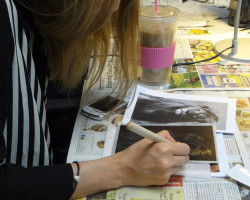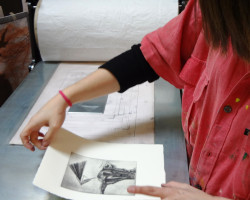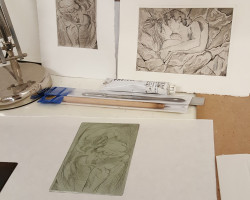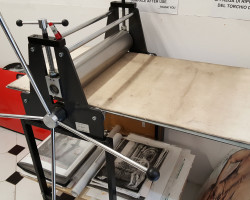FINE ART AND HANDYCRAFT COURSES
- Painting and Drawing
- Painting - Ancient Techniques
- Painting - Contemporary Techniques
- Oil Painting
- Fresco
- Sculpture
- Fashion Design
- Visual Arts
- Printmaking
- Photography
- Pottery and Ceramic Decoration
- Jewelry
- Art history
LONG-TERM COURSES
ONLINE COURSES
GROUPS
FLORENCE EXPERIENCE
ITALIAN LANGUAGE
Request information
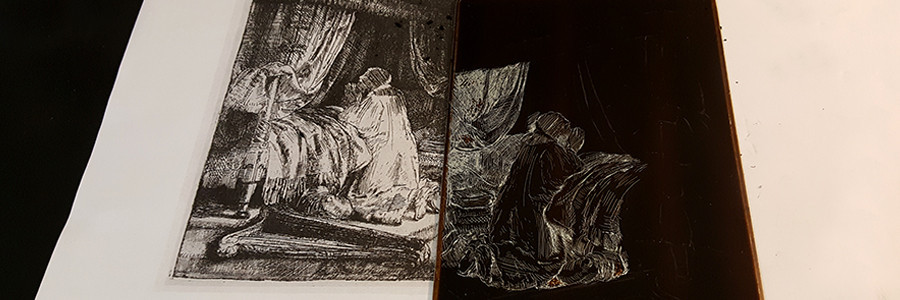
Printmaking
Engraving, an art that already existed in various forms from ancient times, was a key element of the printing process invented in the XV century, which allowed the widespread diffusion of culture by transforming the book from a rare and precious object into a work and study tool. In addition to being aimed at reproducing images in books, engraving turned out to be the preferred expressive medium of many artists. Great masters of the past such as Albrecht Dürer and Francisco Goya created with the Etching (Aquaforte) and Aquatint techniques real masterpieces admired all over the world.
During the Printmaking course students will acquire the knowledge and skills to master these ancient techniques in particular and translate them into a contemporary style.
The course starts every Monday and it is available in two types:
-Basic (6 hours per week)
-Semi-intensive (10 hours per week)
The minimum enrollment is 2 weeks.
The course is suitable both for beginners and students of more advanced levels and the teacher speaks Italian and English.
For more information clickHERE
During the Printmaking course students will acquire the knowledge and skills to master the techniques of Acquaforte (Etching) and Acquatinta and translate them into a contemporary style. These techniques involve the use of a pointed tool and acids for create the images on the metal plate.
While engravings are made by simply scraping the surface of the matrix with a needle, the Etching and Aquating methods involve dipping the plate in a bath of acid called mordant (French for “biting”), that “bites” into the metal creating deep lines where it is not protected with a special coating.
The Acquaforte method consists in applying a layer of coating varnish to the matrix to protect it from the acids and then tracing the drawing on the metal with a pointed tool. The acids will corrode the plate where the needle has scraped off the varnish thus creating the design on the metal.
Whereas Acquaforte produces clear and defined lines, Acquatint is used to obtain different shades of gray and chiaroscuro effects. Instead of using a needle, a resin called greek pitch is applied homogeneusly on the matrix so that during the acid bath the surface of the metal will be corroded evenly creating tonal effects.
PROGRAM
phase 1 - Preparation of the plate (zinc or copper)
phase 2 - Creation of a drawing
phase 3 - Drawing on the plate with tracing paper
phase 4 - Use of acids for etching
phase 5 - Learning how to wet the paper, apply the ink and clean the plate
phase 6 - Printing process with the manual press




